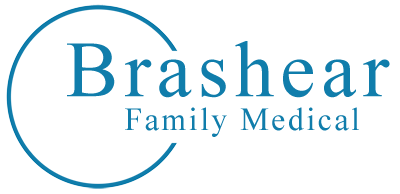
High cholesterol increases your risk of heart disease and heart attacks. While medications can help improve your cholesterol, healthy lifestyle choices can also be beneficial. Therefore, we have put together a few healthy lifestyle choices to manage cholesterol.
Healthy Lifestyle Choices to Manage Cholesterol
For those seeking ways to manage your cholesterol levels, the following are a few healthy choices to manage cholesterol.
Eat Heart-Healthy Foods
A few changes in your diet can reduce cholesterol and improve your heart health, including the following:
Reduce Saturated Fats
Saturated fats are primarily in red meat and full-fat dairy products. However, these can raise your total cholesterol.
Therefore, decreasing your consumption of saturated fats can reduce your low-density lipoprotein (LDL) cholesterol — the “bad” cholesterol.
Eliminate Trans Fats
Trans fats are sometimes listed on food labels as “partially hydrogenated vegetable oil”. These are common in margarines and store-bought cookies, crackers and cakes.
However, trans fat raise overall cholesterol levels. The Food and Drug Administration has banned the use of partially hydrogenated vegetable oils by January 1, 2021.
Eat Foods Rich in Omega-3 Fatty Acids
While omega-3 fatty acids don’t affect LDL cholesterol, they have other heart-healthy benefits, including reducing blood pressure. The following foods are a few examples that are rich in omega-3 fatty acids:
- salmon
- mackerel
- herring
- walnuts
- flaxseeds
Increase Soluble Fiber
You can reduce the absorption of cholesterol into your bloodstream with soluble fiber. A few examples of foods rich in soluble fiber include the following:
- oatmeal
- kidney beans
- brussels sprouts
- apples
- pears
Add Whey Protein
Whey protein is common in dairy products. It may account for many of the health benefits attributed to dairy.
Many studies show that whey protein given as a supplement lowers both LDL cholesterol and total cholesterol. In addition, it also lowers blood pressure.
Exercise and Increase Your Physical Activity
Exercise can improve cholesterol. Moderate physical activity can help increase high-density lipoprotein (HDL), cholesterol, which is the “good” cholesterol.
Working up to at least 30 minutes of exercises five times a week or vigorous aerobic activity for 20 minutes three times a week can be beneficial. However, make sure to confirm with your doctor before beginning any new exercise routines.
If you are seeking motivation, consider finding an exercise buddy or joining an exercise group.
Quit Smoking
You can improve your HDL cholesterol level by quitting smoking. The following benefits can occur quickly:
- Withing 20 minutes of quitting, your blood pressure and heart rate recover from the cigarette-induced spike.
- Withing three months of quitting, your blood circulation and lung function begin to improve.
- Within a year of quitting, your risk of heart disease is half that of a smoker.
Lose Weight
Carrying even a few extra pounds can contribute to high cholesterol. Small changes in your diet can add up.
If you drink a lot of sugary beverages, consider switching to tap water. You can even snack on air-popped popcorn or pretzels. However, make sure to keep track of the calories. If you are searching for something sweet, try sherbet or candies with little or not fat, such as jelly beans.
In addition, look for ways to incorporate more activity into your daily routine. This can include the following:
- using the stairs instead of taking the elevator
- parking farther from your office
- taking walks during breaks at work
- increasing standing activities, such as cooking or doing yard work
These are just a healthy lifestyle choices to manage cholesterol. If you have any questions or would like to schedule an appointment with your doctor here at Brashear Family Medical, contact us with the link below!
